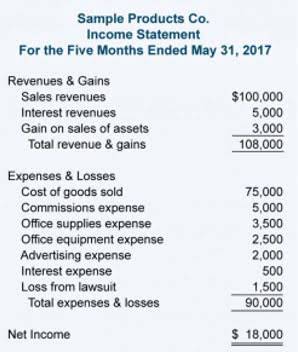
Implementing new technologies in accounting can transform financial operations, driving efficiency and accuracy. Understanding these challenges can help businesses better prepare and mitigate potential issues. Accounting technology includes a diverse range of tools and software that enhances the efficiency of accounting https://www.bookstime.com/articles/accounting-for-photographers teams, enabling them to focus on higher business value tasks. There are eight major technologies that play a pivotal role in transforming the accounting landscape. Today, thanks to advanced accounting systems that interface with businesses in real time, auditors can have access to figures, policies and judgment calls at all times.
- Establishing centralized management for intercompany accounting provides oversight and consistency.
- Manual revenue calculations also hinder the ability of technology companies to develop more than a basic understanding of their financial performance.
- Businesses need to establish comprehensive standards and policies for consistent intercompany accounting practices.
- As the technology landscape continues to change, how will your company adapt its accounting practices to meet future challenges.
- As business advisors working with all stages of technology companies, from startups and emerging growth to large, tech companies, we understand that the pressures faced in today’s economic environment are constant.
- Young prospective accountants are coming into a world set to be transformed by technology, where they will be involved in high-value, high-impact activities driven by innovation.
Build fully-customizable, no code process workflows in a jiffy.
- Tech startups require a different accounting due to several unique characteristics and challenges these companies face.
- This stage entails initial planning and designing efforts before the establishment of technological feasibility, which are not capitalizable as per GAAP.
- With the ability to detect 12 common types of errors and omissions in real- time, organizations can ensure the accuracy and integrity of their financial data.
- In this InformationWeek article, Chris DeMayo, Practice Leader, Technology and Emerging Growth Services, discusses the collapse of Silicon Valley Bank and how this may impact the future of startups and funding.
- Investing in or otherwise being in the business of selling or using digital assets may present technology entities with a host of opportunities but also unique accounting challenges.
Tech startups require a different accounting due to several unique characteristics and challenges these companies face. Partnering with accountants and tax advisors who specialize in the tech industry can provide valuable insights and help navigate complex regulations. First, your tech company needs the best multi-entity ERP or accounting system that fits its needs and budget. If your tech company is venture capital financed, ask the VCs or members of their other portfolio companies which ERP system they recommend. Besides its AP automation software, Tipalti offers employee expense automation software (Expenses) that works in combination with its AP automation software. Other Tipalti products are advanced FX products (Multi-FX and FX Hedging), and Mass Payments for payouts to creatives, publisher networks, affiliates, and independent contractors.

Sales Tax and VAT

In the fast-paced tech industry, accurate accounting provides a strategic foundation for scalability and agility, enabling firms to adjust to changing market demands without compromising financial stability. As an emerging tech company, it’s critical to take control of finances and streamline your accounting processes. By selecting the right accounting software, you can automate your financial tasks, ensure accurate record-keeping, and gain valuable insights into your company’s financial health. In the technology sector, accounting for software development costs is pivotal, defining Accounting Periods and Methods the financial health and valuation of companies.

How to Approach Financial Reporting and Compliance in the Tech Industry?
Intercompany accounting helps businesses understand the intercompany transactions between their entities and the parent company. It ensures companies’ tax filings are accurate and eliminates duplication in intercompany transaction journal entries. The journal comprises the date, type accounting for tech companies of transaction, amount, and account involved in each transaction.

Improved reporting

When tech startups prioritize maintaining good accounting records through a structured bookkeeping checklist, they are better equipped to analyze their financial performance accurately. The sheer volume of financial data generated today can be overwhelming to analyze manually. You need a data analytics tool that offers deeper financial insights by identifying trends, and anomalies, and optimizing opportunities. When businesses analyze historical transaction data they can forecast future cash flow and mitigate risks enabling informed decision-making. Integrating automated financial solutions can further simplify the identification and resolution of discrepancies and ensure precise accounting.
- The following frequently asked questions provide clarity on international financial reporting standards, GAAP regulations, and common accounting practices within the industry.
- Acumatica is a cloud-based accounting software that provides financial management, inventory management, and order management features.
- It includes accounting software that streamlines tasks such as data entry, ledger maintenance, & financial reporting for efficient & accurate bookkeeping.
- Britain’s tech scene is booming and there’ll be plenty of opportunities for you along the way.
